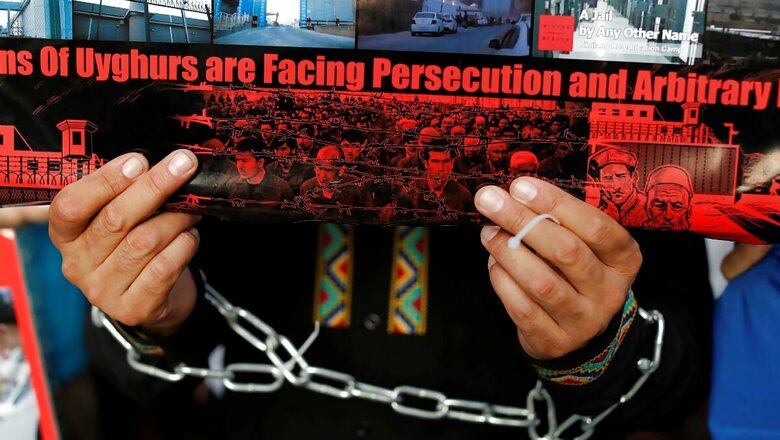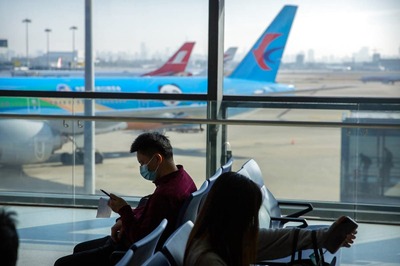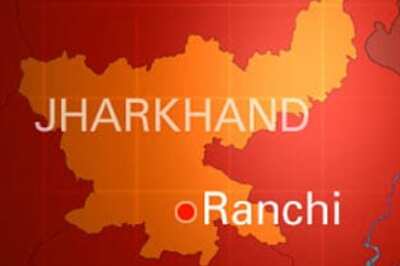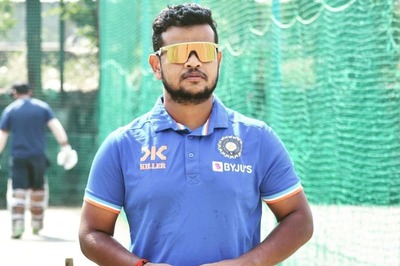
views
In 1949, as the People’s Liberation Army entered East Turkistan, Uyghur leaders and intellectuals prepared for a life in exile. These individuals, among them storied figures such as Isa Yusuf Alptekin and Muhammad Amin Bughra, knew their lives were in danger and advocacy for the Uyghur people would have to continue overseas.
The arduous journey across the Himalayas led to Kashmir and ultimately safety. Upon arrival, Kashmiri politician Mohammed Abdullah Sheikh convinced Delhi to let the refugees stay. From India, Uyghurs requested international support for their self-determination and met with the Dalai Lama, who in 1959, also sought refuge in India.
At a critical time in our history, India did the right thing. It gave Uyghurs sanctuary from a murderous Chinese Communist Party. More than 70 years later, with the Uyghur people facing a genocide, we need India to do the right thing again. Uyghurs need India to speak out against Beijing’s concentration camps, forced sterilisations, and coerced labour.
The Indian government has maintained near silence on the Uyghur crisis unfolding to the north. This is puzzling, especially since China is making saber-rattling moves on the Sino-Indian border. While the lack of any bilateral action is glaring, India should join multilateral efforts, especially in the United Nations, to bring China to account.
To date, there have been three statements and letters condemning China in the UN. The first in July 2019 expressed alarm over mass detentions of Uyghurs and was co-signed by 22 states. The second, delivered at the Third Committee session on the Committee for the elimination of racial discrimination in October 2019, included a coalition of 23 countries. A third, led by Germany in October 2020, noted how 39 states have become “gravely concerned about the human rights situation in Xinjiang.”
The signatories of these documents are democratic nations. India, as the world’s most populous democracy, should be among them.
The time for quiet diplomacy in regard to the Uyghur crisis is over. For years, government officials told Uyghurs that the creep towards genocide was being raised in closed-door meetings with Chinese counterparts. This clearly did not work. Although it maintained business as usual, the existential threat to the Uyghur people became more and more evident.
As our families were torn apart, our neighborhoods demolished, and our distinct identity erased, China grew stronger in the face of international indifference.
The environment is changing. China’s atrocity crimes, quest for global power, and disregard for international standards has provoked a response. India’s vibrant media has picked this up already with the publication of opinion pieces in newspapers and television programs devoted to the Uyghur nightmare. India’s government needs to listen not only to the international skeptical turn towards China, but also to its own citizens.
Uyghurs certainly understand national interests when it comes to dealing with China. It has been the reality of our advocacy work. However, India should care about the Uyghur issue and become informed about what is happening in our homeland.
India shares a long border with the Uyghur region with sites of border dispute. The skirmishes in Ladakh and Sikkim since May 2020 with the People’s Liberation Army should not be considered limited to this section of the border. China tests the international response to an act of aggression; if it is found wanting, Beijing takes this as a signal to take more steps in this direction. Absolute control over the Uyghur region enabled by the genocide of my people will progress to consolidating the entire border with India.
Should you remain unconvinced with this argument, witness what has happened in the South China Sea, where maritime borders are disputed between several states. A cartographic sleight of hand, the “nine-dash line,” captured the Spratly and Paracel Islands as Chinese territory, then an “indisputable sovereignty” narrative was normalized as nationalism became China’s state ideology, next China began construction of artificial islands in the contested area, and we are now witnessing the militarization of these islands. When the international community finally responded, it was too late.
India needs to join the multilateral push to bring China to account for the Uyghur genocide. The moral grounds are not a question. However, such an action, in my opinion, is also in India’s national interest. China will sustain its aggressions along the border. As it becomes emboldened in the Uyghur region, the sites where pressure is applied will increase.
Long before there was a Chinese Communist Party, Uyghurs and Indians exchanged goods, information, and ideas. The People’s Republic of China ended these engagements. Isa Yusuf Alptekin and Muhammad Amin Bughra experienced the support and sanctuary of India. They should not be the last. Now is the time for India speak up for Uyghurs.
Read all the Latest News, Breaking News and Coronavirus News here




















Comments
0 comment